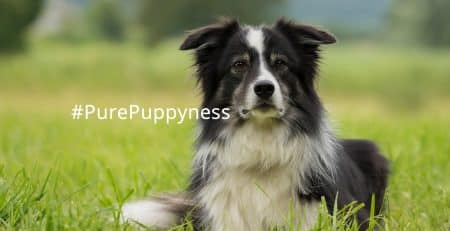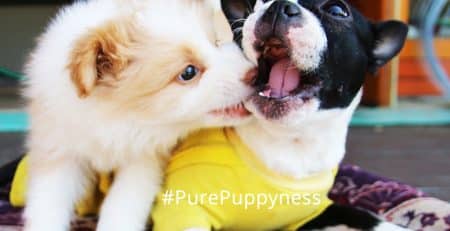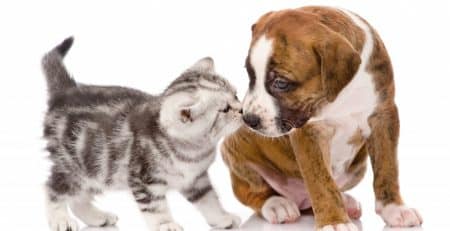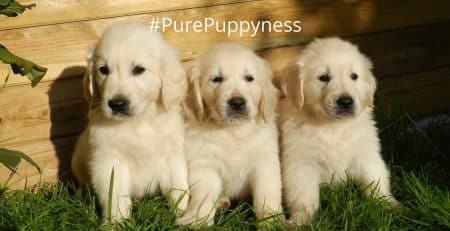Teacup dogs
So-called “teacup dogs” have captured a lot of media attention in the past few years. You may even have considered getting one. But what exactly is a teacup dog, and what are the pros and cons of getting one?
What is a teacup dog?
A dog is considered to be “teacup” sized if it weighs less than 2kg. Generally speaking, there are no teacup breeds; teacup dogs are usually the smaller puppies from a litter of a small, “toy” breed dog. A few medium-sized breeds, such as the Beagle, have also been bred in miniature sizes. Typical teacup dogs include Chihuahuas, Yorkshire Terriers, and the Maltese.
What’s good about teacup dogs?
Teacup dogs have become wildly popular due to their small size. Many people find these micro dogs very appealing.
Aside from being cute, being small is a big advantage for anyone living in an urban setting: smaller dogs tend cope well with living in apartments and smaller homes. Miniature dogs are much easier to transport by car or plane, making these dogs popular with owners that travel frequently.
Additionally, smaller dogs are often a good choice for retired dog lovers that might not be able to meet the needs of a larger dog. Little dogs often need less exercise and may be satisfied with a gentle walk around the neighbourhood once or twice a day.
What are the disadvantages?
You may be surprised to learn that teacup dog breeding is very controversial. It is a major issue for animal welfare advocates, dog breeders, and veterinarians. But what is the big problem with tiny teacup dogs?
Irresponsible Breeding Practises
Looking at pictures of adorable little dogs on Instagram, you might be shocked to realise that there are some shocking issues surrounding their breeding. It is possible to get teacup-sized puppies in a normal litter of small breed dogs; they tend to be the runts of the litter, but were not bred intentionally as teacup dogs.
Runts sometimes have health issues or birth defects; although with proper care and attention they can grow up to be happy, healthy dogs, they are usually not suitable for breeding. The problem is that some breeders will pick the smallest puppies from litters, and breed them together with the aim of breeding tiny dogs.
It is very difficult for a tiny dog to carry a pregnancy to term and successfully give birth. The mother dog is tiny (less than 2kg), and can probably only successfully birth two puppies. Her small size also increases the likelihood of something going wrong during labour.
Health
The resulting puppies are likely to inherit health problems from their parents. Common health problems include:
- Hypoglycaemia
- Heart problems
- Respiratory problems
- Patellar luxation
- Liver shunts
- Hydrocephalus
These are severe health issues that can make a dog’s life uncomfortable or painful, and may even lead to death. Teacup dog’s also have tiny delicate stomachs, and must eat small meals frequently to avoid low blood sugar (which can lead to seizures or death!).
Even without these medical problems, teacup dogs are very fragile. Their small size means that it’s easy for them to get hurt; even pulling the leash too hard or playing too roughly can lead to injuries. Jumping on and off the sofa is a major struggle, and it is all too easy to accidentally step on a little dog that gets underfoot. This is not the best pet for young children, who might not be gentle enough with such a delicate dog.
Fraud
Although some teacup dogs will never grow bigger than 2kg, breeders cannot always guarantee this. Teacup breeds are not officially recognised by any major dog breeding organisation. A breeder may advertise their dogs as Teacup Beagles or Teacup Poodles, but there is no guarantee that they won’t grow to the average size expected of those breeds.
Unscrupulous sellers may falsely advertise their puppies as teacup dogs by lying about their age. Some sellers even starve the puppies to keep them from growing: once given proper nutrition, these puppies usually continue to grow normally.
Should I get a teacup dog?
If you are thinking about getting a teacup dog, our advice is to be cautious. Remember that none of the major dog breed organisations recognise teacup dogs as separate breeds. The usual advice about buying a puppy applies: be sure to do your research, and look for any warning signs that the seller is running a scam. Research the dog breed; check the seller’s references; and either visit the breeder’s home or ask for them to take videos and photos for you.
The fact is that teacup dogs seem to be a trend: one that you don’t need to buy into. If you are concerned about a puppy growing too large, you can always opt to buy or adopt an older dog that has already grown to full size. You can find a wide range of small sized dog breeds that are healthy and bred by responsible breeders.
Some of our favourite small dog breeds include:
- Chihuahua
- Pomeranian
- Japanese Chin
- Toy Fox Terrier
- Papillon
- Brussels Griffon
- Yorkshire Terrier
- Toy Poodle
- Maltese






















